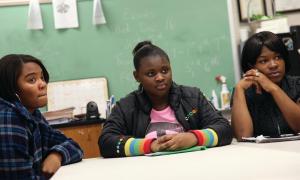text
Informational
Bill Clinton apologizes for Tuskegee Experiment

This speech, delivered by then-President Bill Clinton, recognized and apologized for the study conducted by the United States government on more than 500 unknowing African-American soldiers at Tuskegee for untreated syphilis.
June 18, 2019

